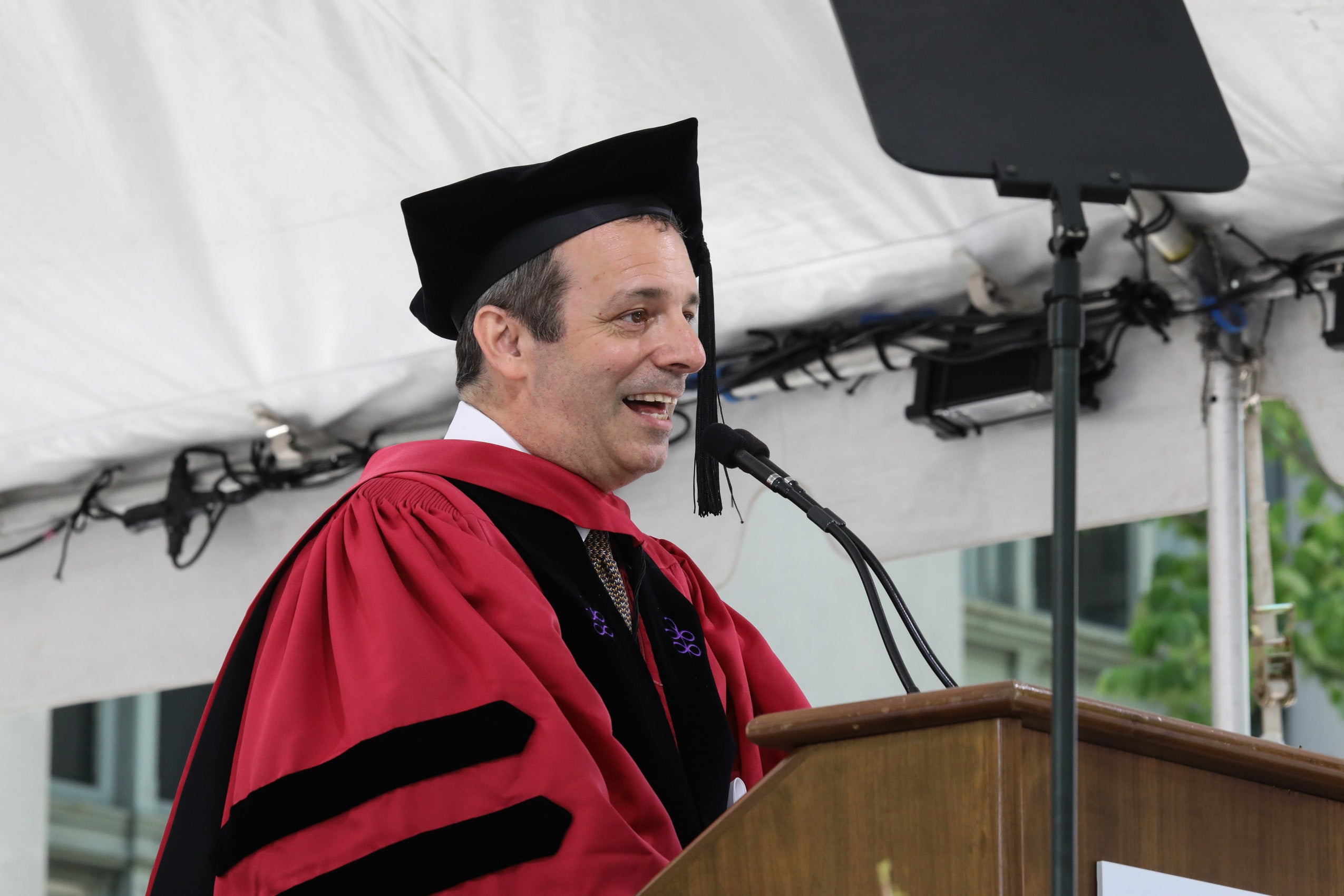In his first commencement address as dean of Harvard Law School, John F. Manning recalled his own graduation in 1985, and thought it would be helpful to talk about some things he wished he’d known at the time. Building on lessons learned “by making good and bad decisions, by accumulating successes and failures and mistakes, and by watching lots of other people do the same,” Manning related five pieces of advice for new lawyers–what he described as “canons of construction for life.”
First: Find a job that gives your life meaning. Doing so, he said, requires lawyers “to keep looking and switching and changing until you do.” Acknowledging that this advice might seem obvious, he cautioned that many would urge new lawyers to follow the set path and “play it safe.” “That’s all nonsense,” said Manning. He urged graduates to “take risks” and quoted Dean Kagan’s advice, “Don’t settle.”
Second: See your disappointments as a mark of success, not failure. Manning recalled that he had been turned down for a teaching job at Harvard Law School three times before he was appointed. Stressing that “life is a percentage game,” he urged graduates to “never be embarrassed about the jobs you don’t get” or to “self-select out of opportunities because you’re afraid you won’t get them.”
Third: Deflect credit and own your mistakes. Quoting Harry Truman (“It’s amazing what you can accomplish if you don’t care who gets credit”), Manning stressed the virtues of trust, teamwork, sharing success, and taking responsibility. Not taking ownership of mistakes, he said, “does not earn you anyone’s respect; it does not help you learn; it’s simply not cool.”
Fourth: Don’t choose your friends by their political views. Manning said that great lawyers and leaders must listen generously to different points of view. Doing so, he explained, enables you to sharpen your own arguments, as well as understand their weaknesses and vulnerabilities. He also assured graduates, “based on long and happy experience,” that if they follow this advice, they will find some cherished friends along the way.
Fifth: Your integrity is something no one can take away from you. “Your integrity is the one thing in your professional career that only you can control. To lose it, you have to give it away,” Manning said. He explained the many ways in which integrity is tested–for example, by political or peer pressure, by professional opportunity, by the temptation to rush to judgment, by conflicts between what the law requires and one’s sense of the best policy outcomes. And he recalled the words of a mentor, “Your commitment to principle is tested only when it hurts.” He added that a commitment to the integrity of process and the rule of law is “what makes our profession important and distinctive.”
Manning closed with his wish for the Class of 2018: “That you will be bold, that you will be courageous, that you will turn this world upside down … and that you will do it by being excellent lawyers, by bringing the skills and powers of our craft to bear on a world that badly needs them.” He added that “my wish for all of you is that you will know the satisfaction of serving that high calling and of pursuing the highest ideals of law and justice.”
